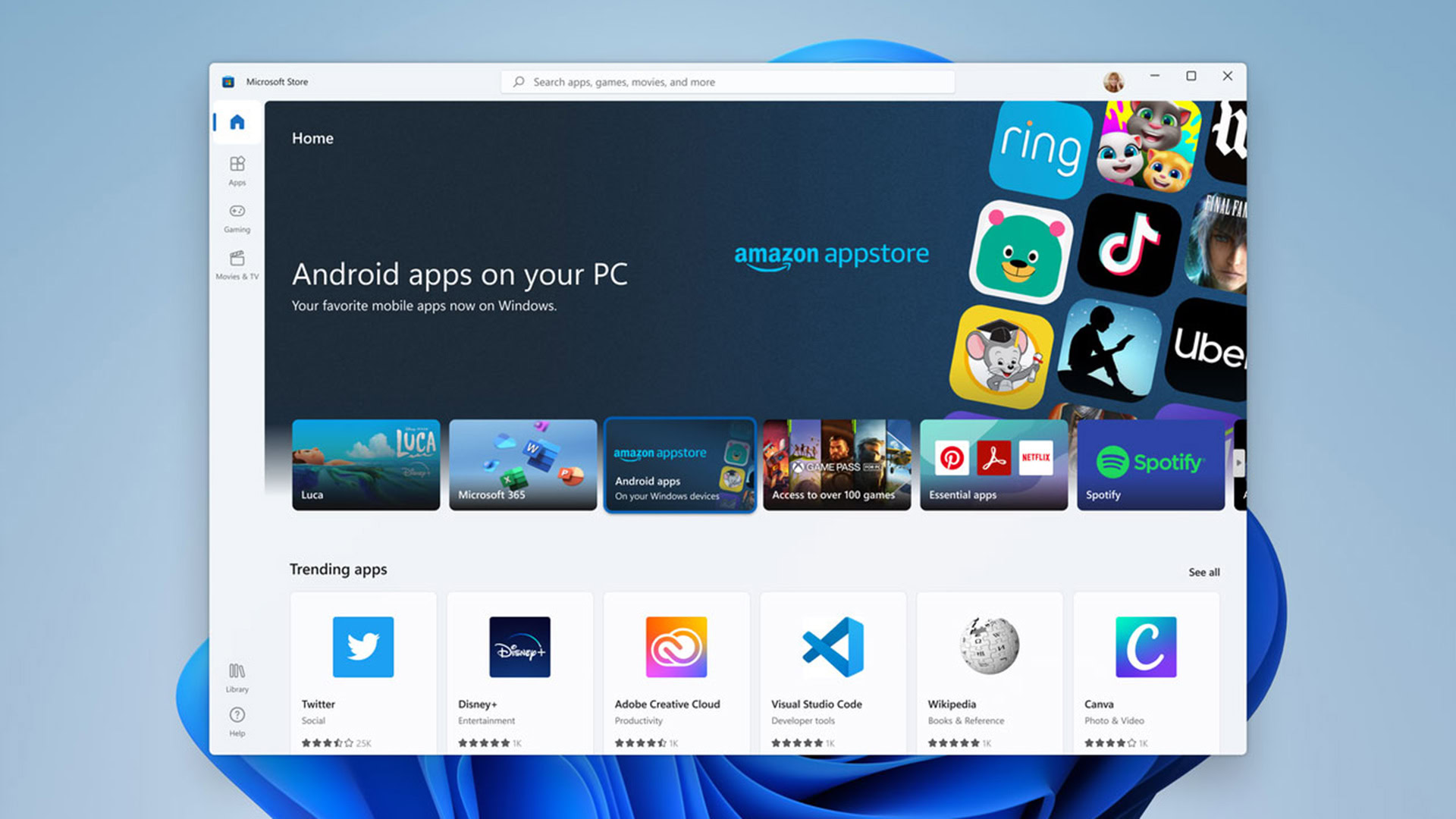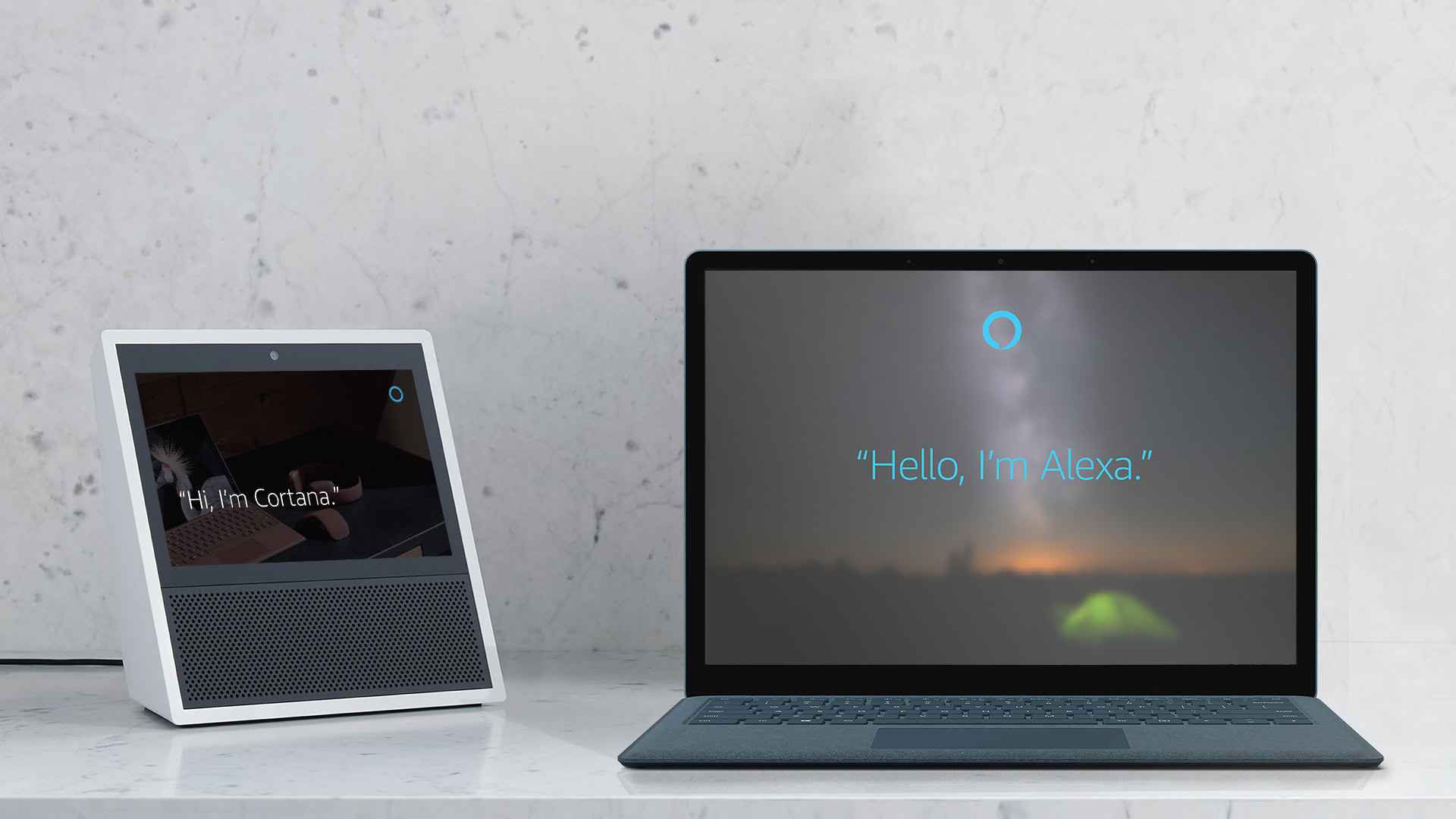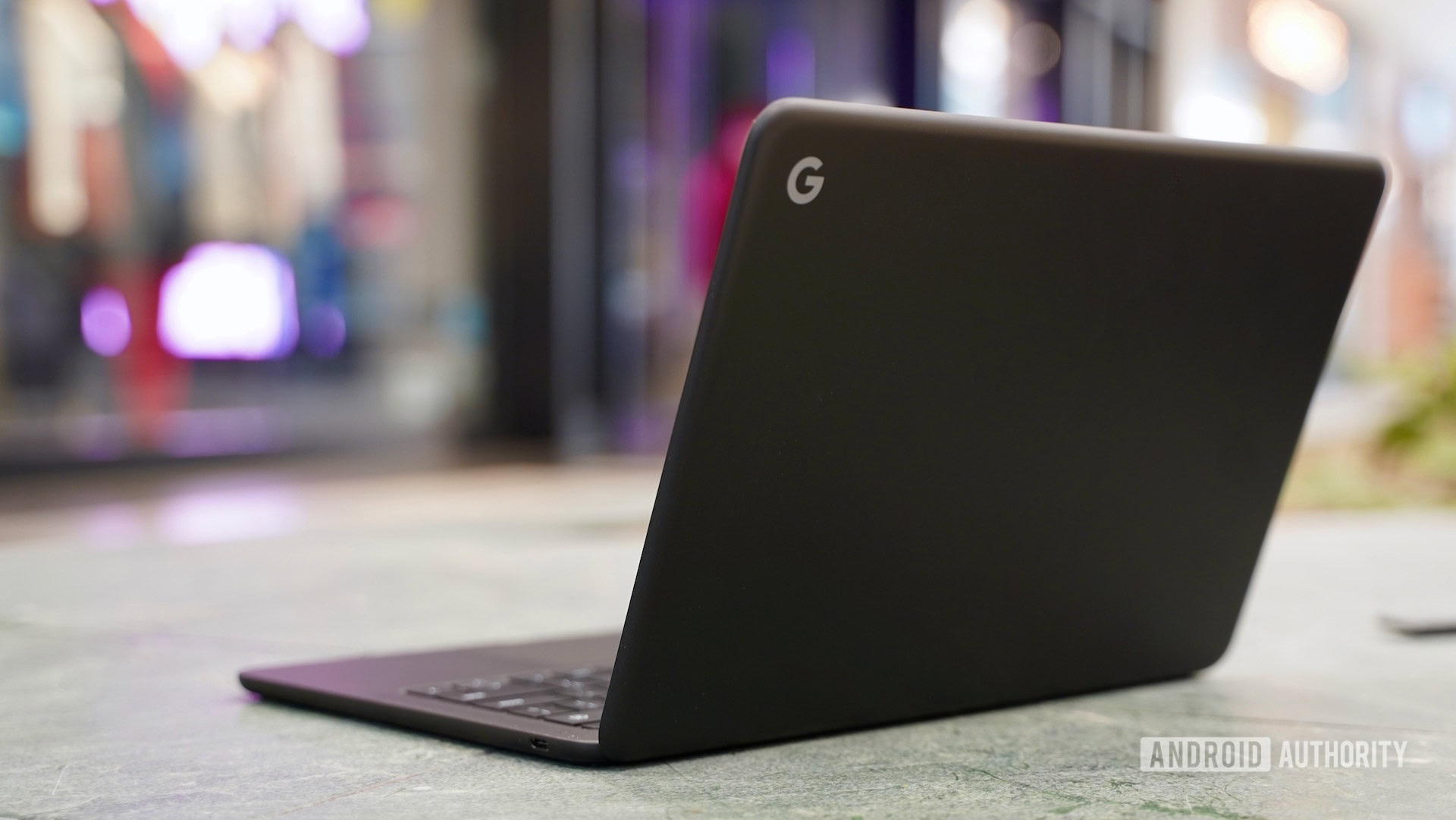Affiliate links on Android Authority may earn us a commission. Learn more.
Why did Microsoft choose Amazon over Google for Windows 11 Android support?

Microsoft irked more than a few Android fans when it revealed that Windows 11 would run apps from the Amazon Appstore and not Google Play. Why limit PC users to a small selection of apps that might omit some of their favorites? Was Amazon the last resort after Google balked at the idea?
Microsoft isn’t providing many official answers. However, sources told Android Authority that the Amazon move brought “incredible benefit” to customers and that it was good to team with a range of tech partners in the name of “choice and fairness.” The company did hint it was merely at the start of its “journey” with Windows 11, but we wouldn’t count on a surprise Google deal to expand the Android app catalog.
The truth, as is often the case, might be more nuanced than you think. While Google might not have leapt at the chance, Microsoft likely had practical reasons for choosing Amazon’s portal to supply Android apps. It’s just a matter of which reasons were the most compelling — some of them are more logical than others.
Don’t miss: Why you probably won’t be able to use Windows 11
A marriage of convenience

This isn’t Microsoft’s first dance with Amazon, for one thing. Microsoft bundled Alexa with Windows 10 in 2018, and Amazon returned the favor through tie-ins like Alexa‘s Skype support. It wouldn’t be a stretch for Microsoft to ask Amazon for Android app support, then, as the two are already quite cozy.
It’s also no secret that Microsoft and Amazon have a shared enemy: Google. Both companies have strong competitive reasons to snub Google, whether it’s Microsoft’s determination to crush Chrome OS or Amazon’s desire to offer alternatives to Google Play and Google Assistant. This team-up gives Microsoft the Android support it wants in Windows and Amazon the prominence it wants, without funneling any money toward the two tech giants’ main rival.
Opinion: Android apps on Windows gives us what Google promised all along
And yes, it might have been a simple matter of money. Amazon and Google are huge corporations, but Amazon doesn’t depend nearly as much on the Appstore as Google does the Play Store. So whether or not Google was in consideration, Amazon might have offered a sweet enough (read: low enough) price that Microsoft didn’t have to think twice about who would supply Android apps to Windows users.
Bad blood with Google

As that enemy-of-my-enemy factor implies, Microsoft hasn’t exactly had a warm relationship with Google over the years. Moreover, the rivalry between Chrome OS and Windows is just the start — the two have warred over mobile operating systems, voice assistants, and search engines. Why would Microsoft tap Google for Android apps in Windows after years of feuding, especially when that feud has been particularly bitter at times?
See also: Here are all the Chromebooks that can run Android apps
Take Windows Phone, for example. Microsoft desperately wanted a YouTube app for Windows Phone, to the point where it wrote its own client when Google wouldn’t make one voluntarily. Google quickly blocked YouTube access on the platform, and Microsoft was equally quick to accuse Google of hampering Windows Phone to give Android an unfair advantage. Microsoft likely wasn’t eager to talk to the company that might have torpedoed Windows Phone with an app, let alone the usual competitive tactics.
This isn’t to say Microsoft and Google never work together. The two have cooperated on the Chromium-based Edge browser and the pursuit of true web standards. However, Microsoft could be more than a little touchy about asking Google about Play Store integration. It might have seen the inclusion of Google’s shop as conceding defeat or at least funding a directly competitive product. Amazon gave Microsoft a way to offer what many wanted (running Android apps on a Windows PC) without the shame of giving Google what it wanted.
Google might not have been receptive

This is assuming Google was even willing to entertain the idea of putting Android apps on Windows 11. At a minimum, this would have negated one of Chrome OS’ main advantages while fuelling Windows. Google might not like that Microsoft turned to Amazon, but it can at least be happy knowing that the Appstore’s selection limits any potential advantage.
There might have been other considerations. Google might have been worried that making Android apps available through Windows would devalue Android itself by making it a seemingly disposable platform. If virtually any non-Apple device can run Android apps, what perks do you get by running a device made with Android in mind? This helps preserve some of the cachet for Android phones, Android tablets, and Chromebooks.
And yes, Google might have its pride to think about. Some might see official Android support in Windows as an act of desperation rather than power, a fear that Chrome OS might not succeed by itself in popularizing mobile apps on the desktop. On the other hand, if Google talked to Microsoft at all, it might have decided that it was better to let Chrome OS claim a smaller slice of the market than imply that the software couldn’t stand on its own merits.
Thank you for being part of our community. Read our Comment Policy before posting.